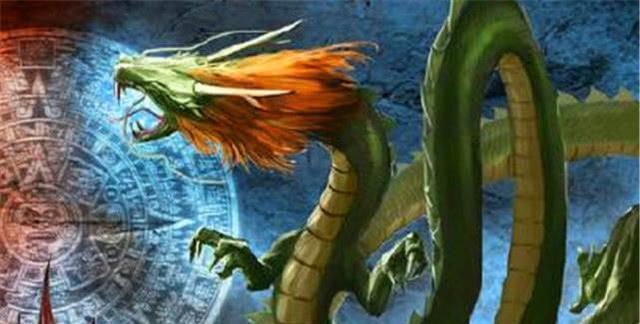The dragon is a mythical creature in ancient myths and legends in China and other East Asian regions, and it is said that this creature is not only huge but also very brave, it can ride the clouds and drive the fog, the clouds and rain, and the mana is boundless. In ancient times, dragons and emperors had deep roots, and emperors often claimed to be the sons of true dragons, reflecting their noble status. For thousands of years, the dragon has always been the totem of our country and has a supreme position, but the strange thing is that no one has ever seen this creature, and many people think that there is no dragon in the world, and everything is imagined by people. The question of whether the dragon is a village has also been recorded in the Classic of Mountains and Seas, and it is said that some people have eaten dragon meat, and the person with this surname is likely to be a descendant of this person.

The Classic of Mountains and Seas records myths and legends, and it is said that some people have eaten dragon meat
The Classic of Mountains and Seas is an important ancient book in the pre-Qin period in China, and it is also an ancient strange book rich in myths and legends. The book records many magical stories and characters that people have never heard or seen, including mountains, rivers, roads, peoples, beasts, and myths, legends, and fables of various popular people. This strange book has a very high status among many strange books in China, and has certain research value for ancient Chinese history, geography, culture, Chinese and foreign transportation, folklore, mythology, etc., and has been loved by many posterity. More importantly, the book also records legends about dragons and eating dragon meat.
It is said that the monarch of the Xia Dynasty was named Kong Jia, and when he first ascended the throne as emperor, someone sent him two small dragons to celebrate and told him to take good care of them, and soon after, other small dragons appeared. Kong Jia was very happy when he received this gift, but he was also a little worried, because no one knew the life habits of the dragon, how could this dragon not die? Just when Kong Jia was worried, someone recommended a dragon breeding master named Liu Lei to him. The emperor instructed Liu Lei to take good care of them and meet all their requirements.
Liu Li, who was full of energy and secretly decided to cultivate these two dragons, but he did not expect that there was a small mistake in the process of feeding, and one of the dragons would soon be killed. After the death of the dragon, Liu Lei was very panicked, and was very afraid that the emperor would find out about this matter, so he directly boiled the dragon skin into a soup and sacrificed it to the emperor. The emperor heard that Liu Lei sent a very face-giving bite, did not expect to fall in love with this taste, praise said that this soup is very tender. When Liu Lei saw that the emperor liked to eat, he was even more frightened, and directly fled the palace, and Kong Jia was also the first emperor in the world to eat dragon meat.
In modern society, these surnames are likely to be descendants of dragon-eating people
There are too many strange events recorded in the Classic of Mountains and Seas, and these things have never been recorded in china's historical records, so many people can't believe that the things in the book are real, even Sima Qian also said: "Yu dare not say it", so it seems that what is recorded in this book cannot be fully believed, and there is also a certain untruth in the matter of eating dragons. But the only thing that can be confirmed is that the person with this surname today must be a descendant of Kong Jia. These surnames are Zeng surname, Tan surname, Sikong surname and so on.